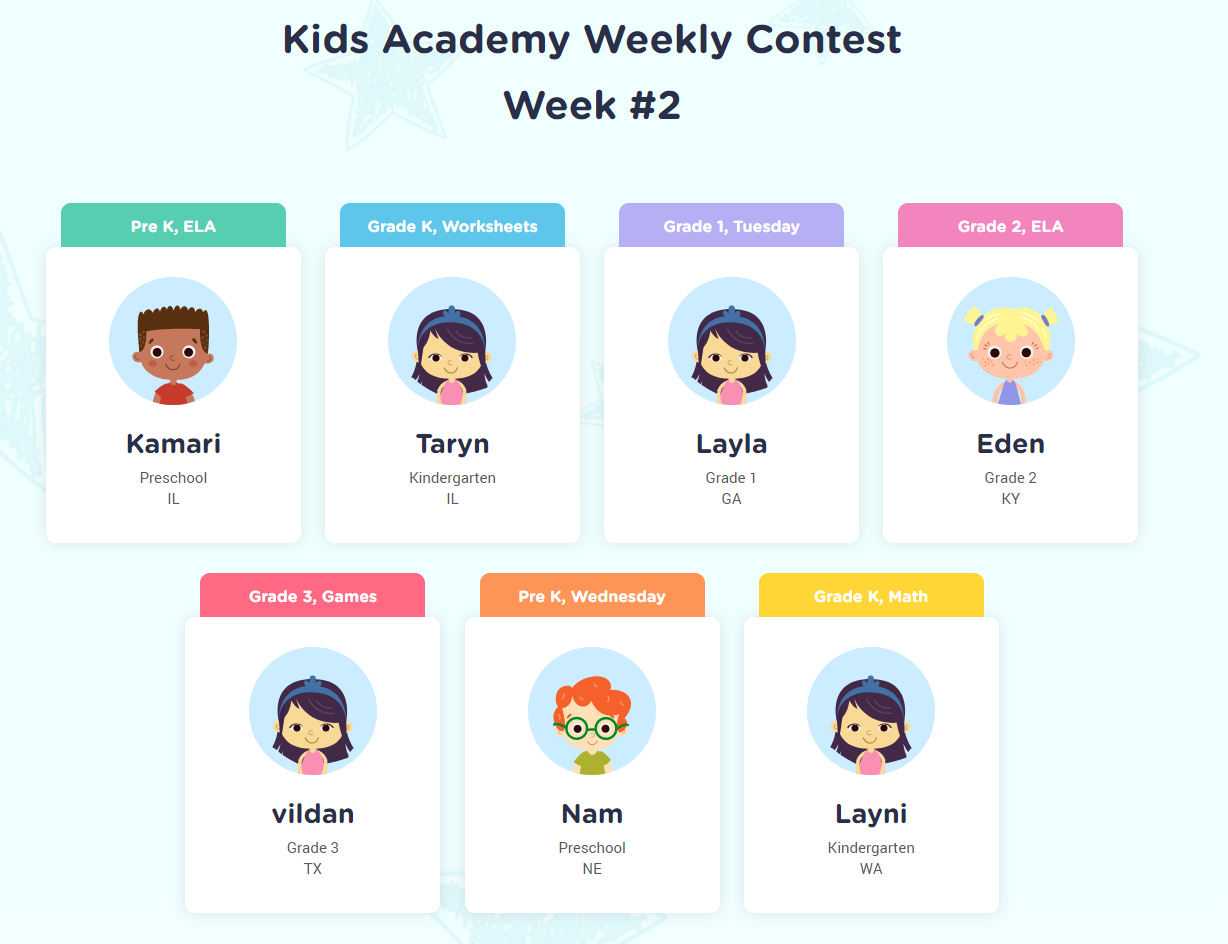Time reading skills Math Worksheets for Ages 6-7
12 filtered results
-
From - To
Help your child master time reading skills with our engaging math worksheets designed for ages 6-7! These interactive resources make learning fun while developing essential skills in telling time, understanding clocks, and recognizing time intervals. Each worksheet features colorful illustrations and age-appropriate problems that encourage hands-on practice and critical thinking. Ideal for both classroom and home use, our worksheets promote confidence and independence in learning. Start your child’s journey to becoming a time-reading pro today! Explore our collection to find the perfect worksheets that align with your child’s learning needs and make math enjoyable! Printable and easy to access!
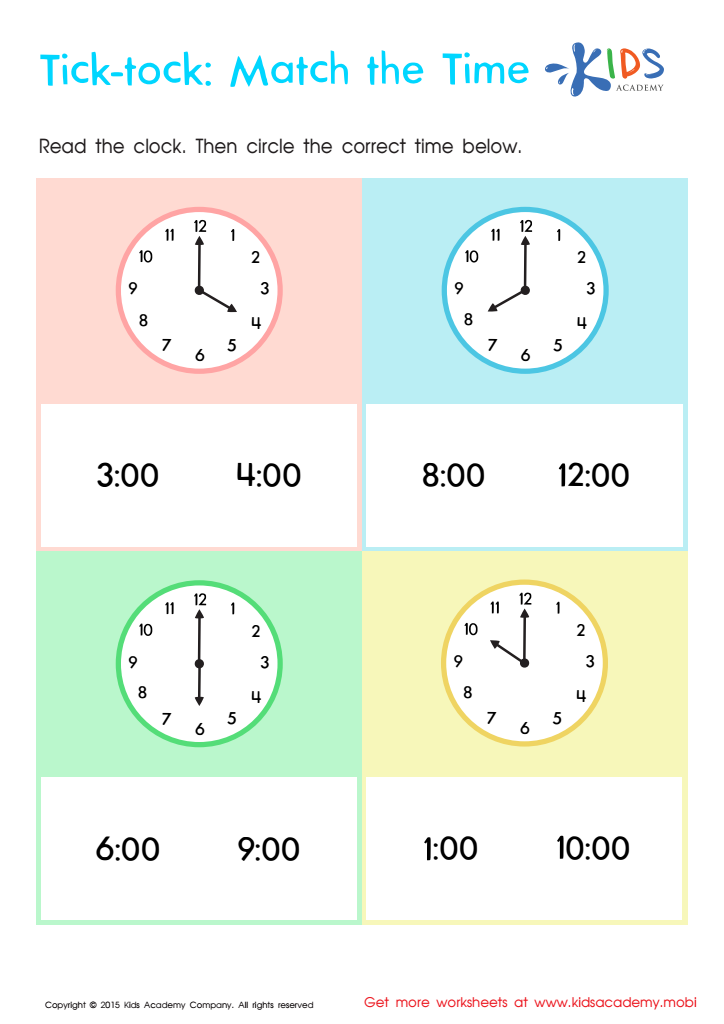

Telling The Time Worksheet: Part 4
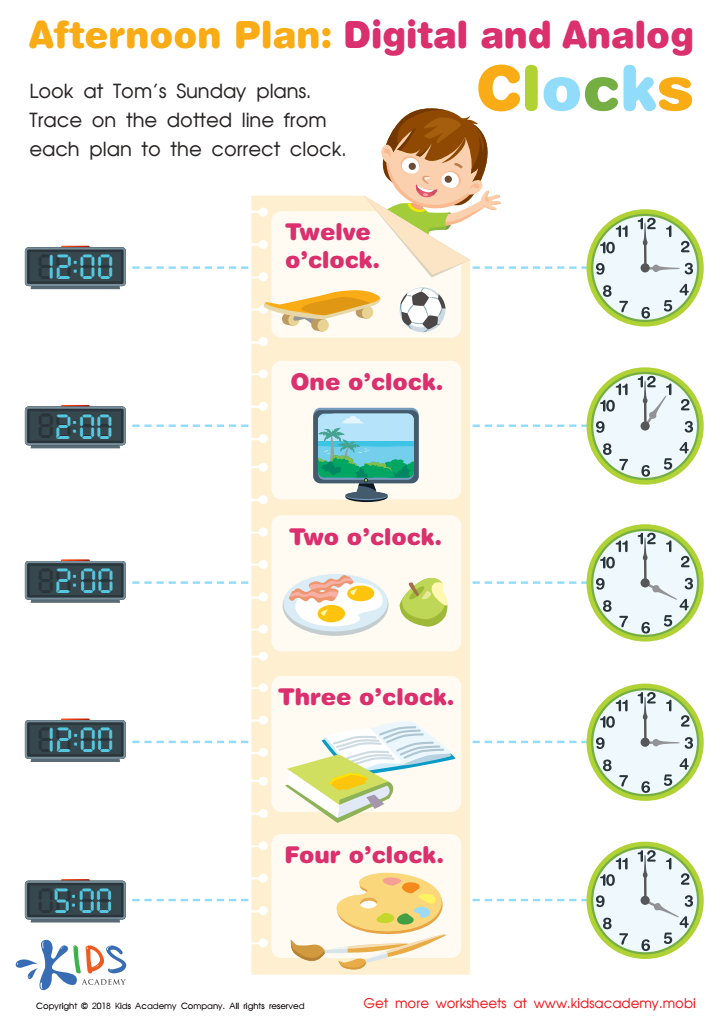

Afternoon Plan: Digital and Analog Clocks Worksheet
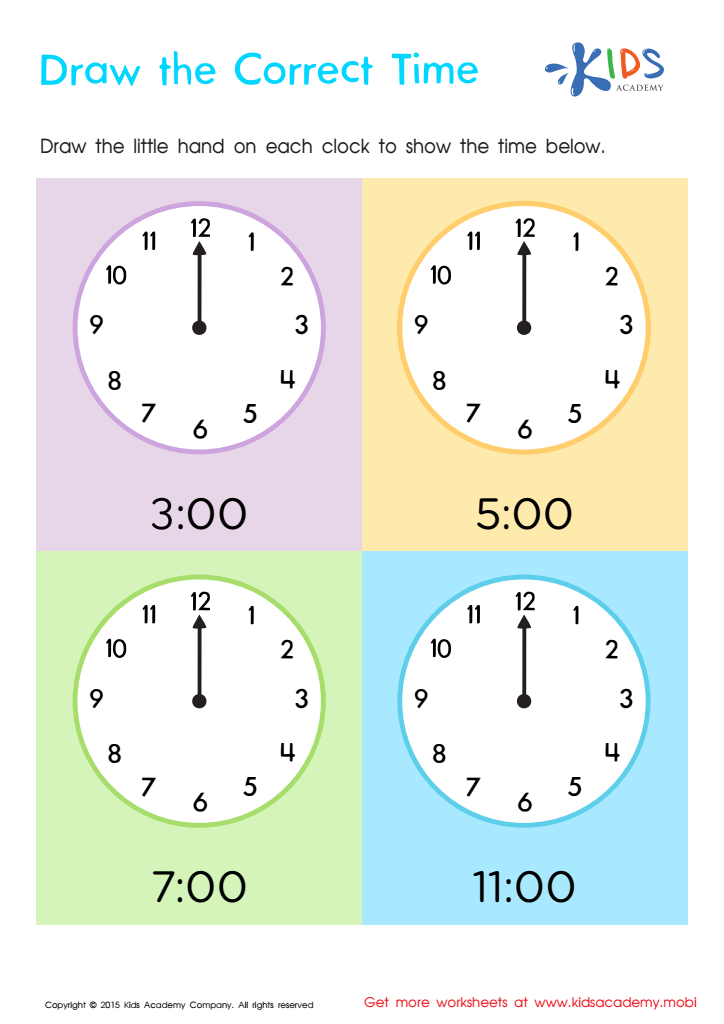

Telling The Time Worksheet: Part 1
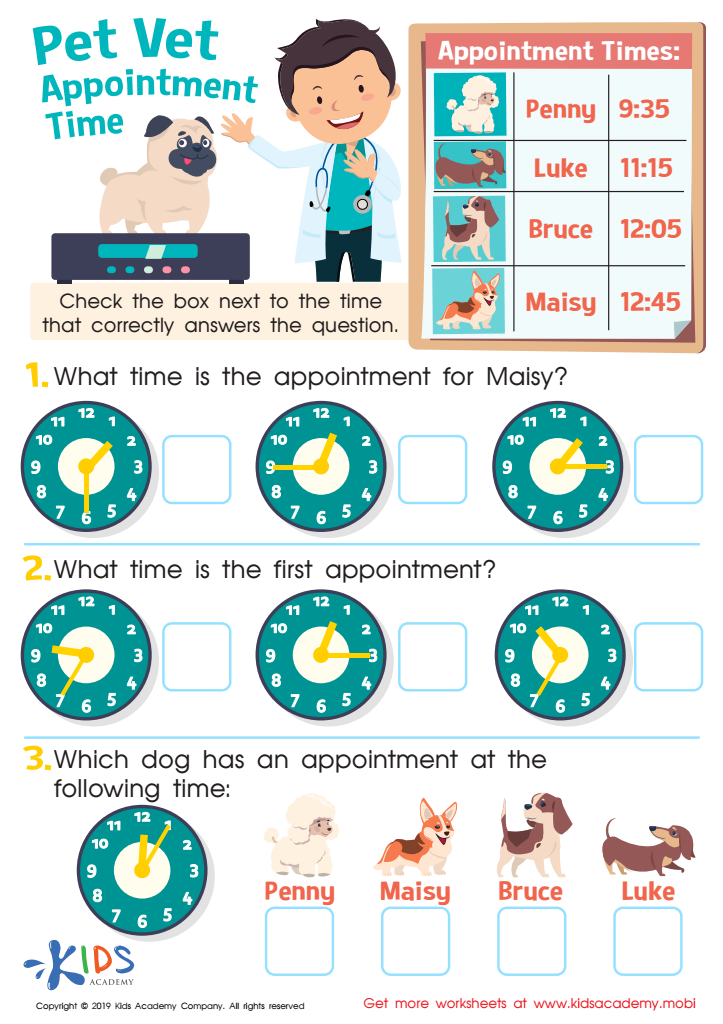

Pet Vet Appointment Time Worksheet
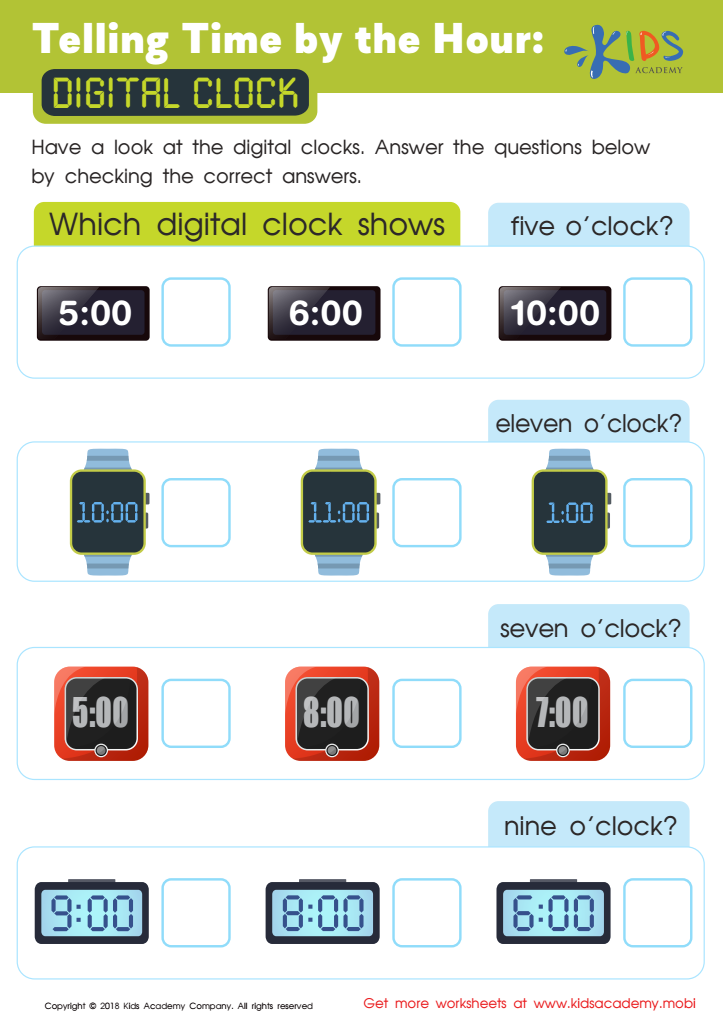

Telling Time by the Hour: Digital Clock Worksheet
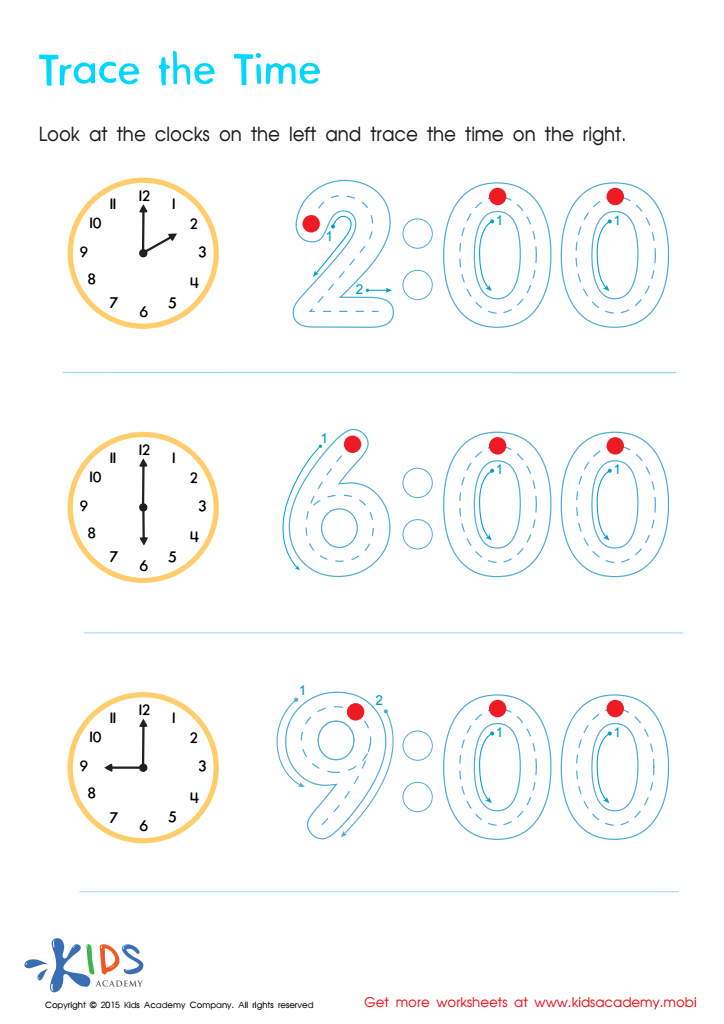

Telling The Time Worksheet: Part 2
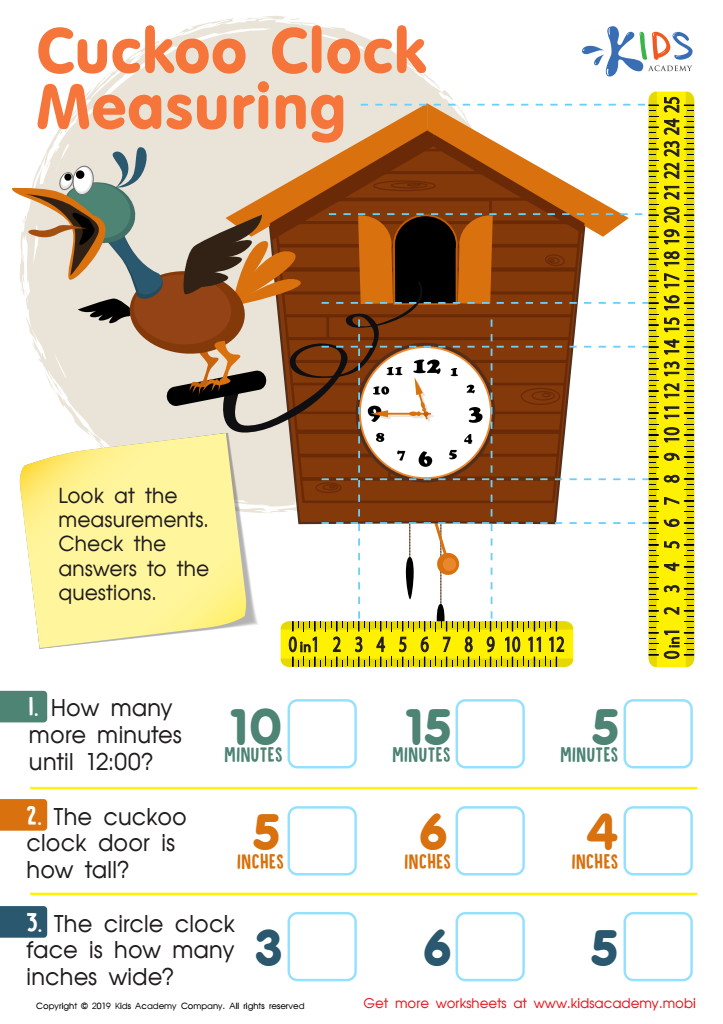

Cuckoo Clock Measuring Worksheet
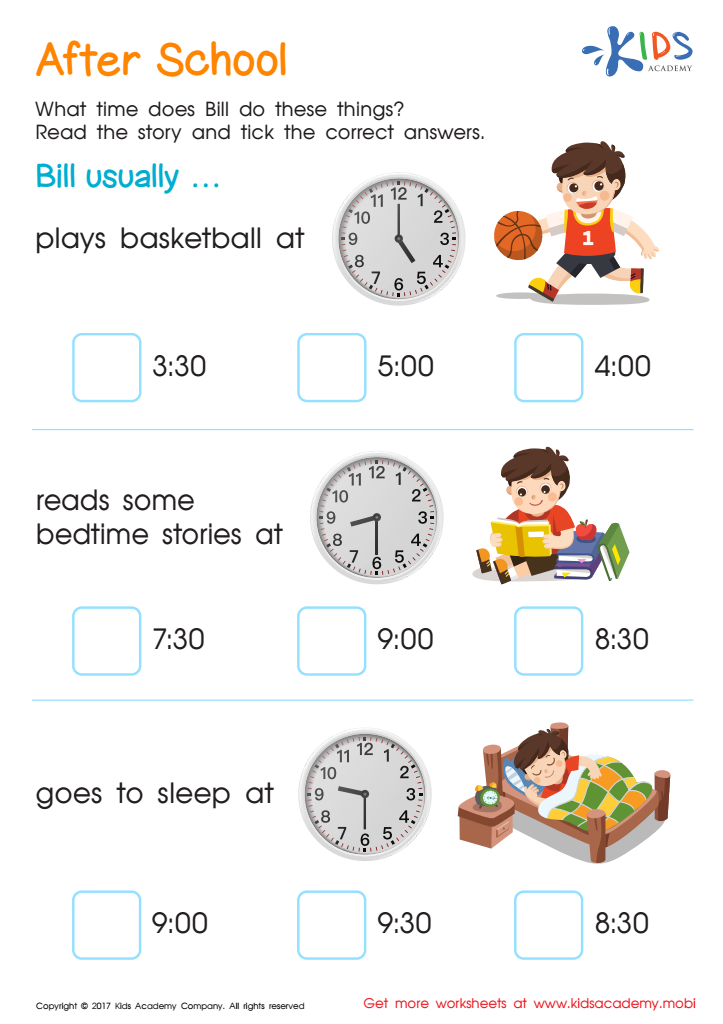

After School Time Printable


Telling Time With Maggie Time Worksheet
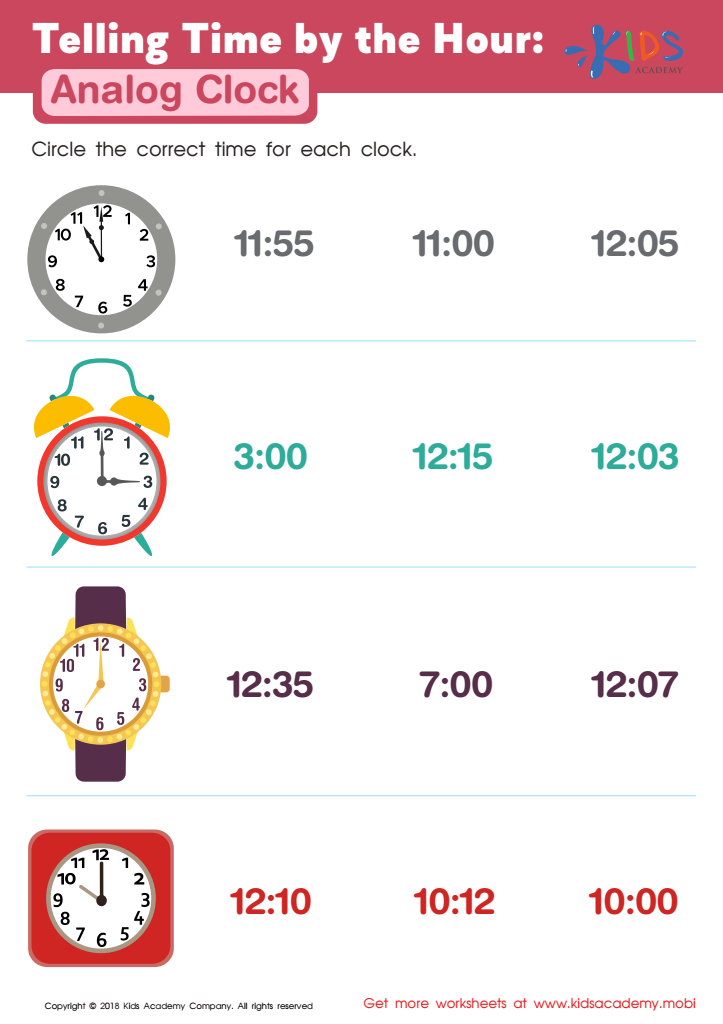

Telling Time by the Hour: Analog Clock Worksheet
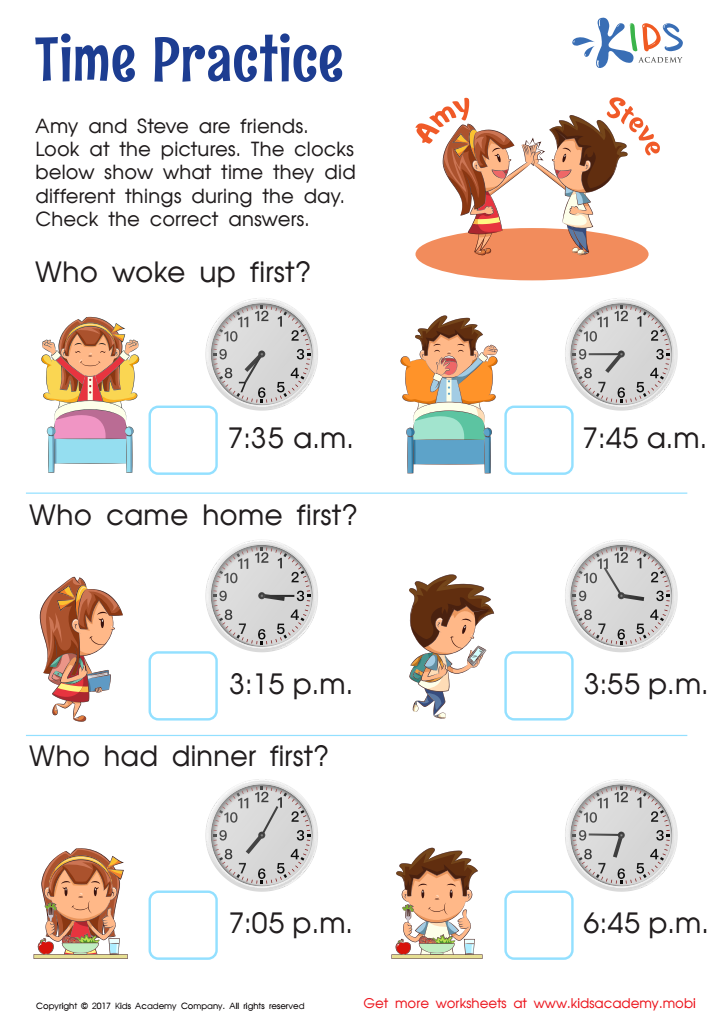

Time Practice Worksheet
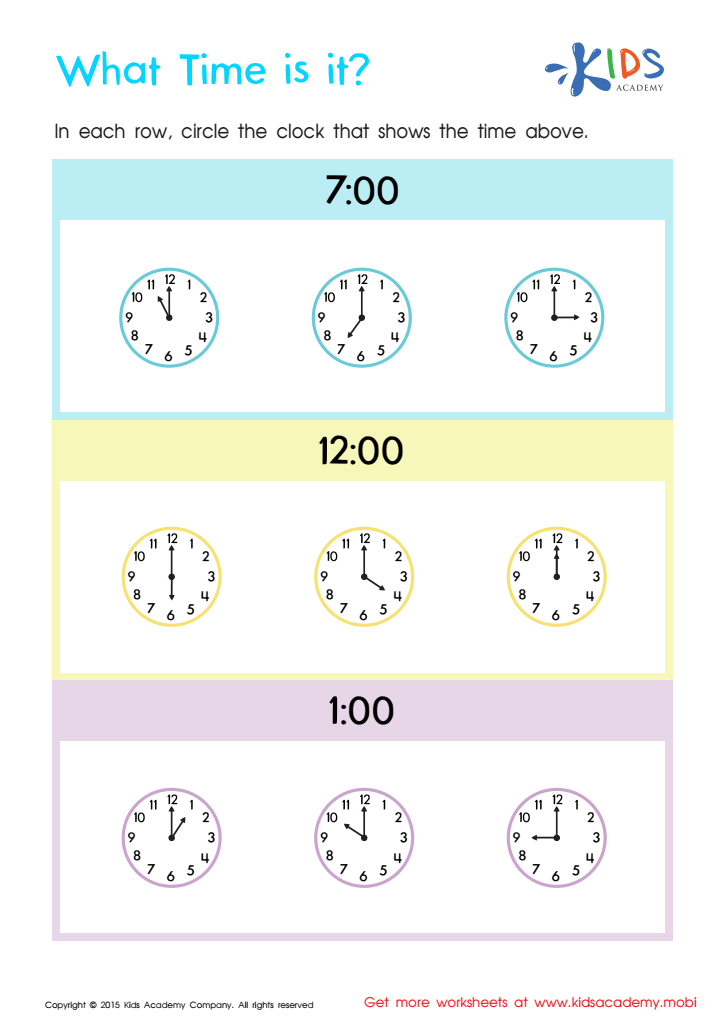

Telling The Time Worksheet: Part 3
Parents and teachers should prioritize time reading skills in math for children ages 6-7 because these skills are foundational for a child's developing numeracy and everyday functioning. At this age, children are beginning to grasp the concepts of time, such as hours, minutes, and the order of daily activities. Time reading skills foster critical thinking and problem-solving abilities, essential for understanding more complex mathematical concepts later on.
Moreover, mastering time reading enhances a child's independence and life skills. Children who can effectively read clocks are better equipped to manage their daily schedules, understand when events occur, and develop punctuality. This autonomy extends to the classroom, where students are required to manage their time in tests and projects.
Furthermore, time reading aids in reinforcing concepts of addition and subtraction, as children often need to calculate elapsed time or schedule events. Teaching children to read various forms of time, from analog to digital, ensures a comprehensive understanding, accommodating different learning styles. Ultimately, focusing on time reading in math at this crucial developmental stage helps children build a robust foundation that will benefit them academically and in everyday life. Parents and teachers play a pivotal role in nurturing these essential skills.
 Assign to My Students
Assign to My Students





